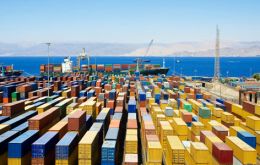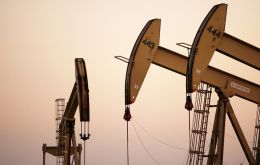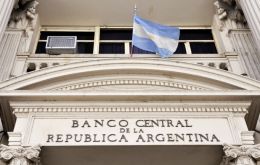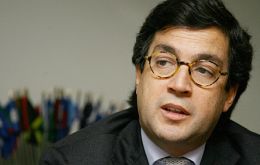MercoPress. South Atlantic News Agency
Economy
-
Tuesday, January 6th 2015 - 07:50 UTC
Brazil posts first trade deficit since 2000: slower economy, fall in commodities' prices

Brazil registered its first annual trade deficit since 2000, according to official data released on Monday. Latin America's largest economy slowed down in 2014 and prices fell for iron ore, soybeans and other key commodities exports.
-
Tuesday, January 6th 2015 - 07:41 UTC
US oil price falls below 50 dollars threshold, and markets decline sharply

The US oil price fell below the symbolic threshold of $50 a barrel for the first time since April 2009, before finishing the day at $50.05. The price of Brent crude also fell on Monday, dipping 6% to $53 a barrel.
-
Tuesday, January 6th 2015 - 07:32 UTC
Brazil' finance minister pledges fiscal balance and cuts in spending

Brazil must focus on making difficult fiscal adjustments in order to get economic growth and investment back in gear, the country's new Finance Minister Joaquim Levy said on Monday. At his swearing-in ceremony in Brasilia, Levy said the process will require the participation of society as a whole and will involve changes to taxes and spending, without resorting to accounting shortcuts.
-
Tuesday, January 6th 2015 - 07:24 UTC
Germany' growing consensus to let Greece drop out of the Euro block

Germany has said it will not be “blackmailed” into renegotiating Greece’s rescue program should a new hard left government take office after elections later this month. The Euro dropped to a nine-year low after a report in Der Spiegel magazine on Monday that Berlin was no longer opposed to Athens leaving the currency bloc.
-
Tuesday, January 6th 2015 - 07:02 UTC
Argentine farmers netted 24.1 billion dollars from grains and oilseeds last year

Argentine farmers exported more than 300 million dollars worth of grains and oilseeds in the last two days of 2014 to help bring in much needed cash for the nation’s central bank. The situation was boosted by an agreement reached between farmers and the Argentine government regarding foreign currency payment for the grains and oilseed.
-
Tuesday, January 6th 2015 - 06:58 UTC
Optimistic forecast for Latin America: 2.2% growth in 2015, up from 1.3% in 2014

Latin America and the Caribbean's economic growth might recover modestly to 2.2% in 2015, up from 1.3% in 2014, its lowest rate since last decade's global financial crisis. Despite the slowdown, the region has managed to maintain its gains against poverty, said Inter-American Development Bank President Luis Alberto Moreno.
-
Monday, January 5th 2015 - 09:06 UTC
Falkland Islands Tourist Board focuses on Tourism to the next Generation of Travellers.

Tony Mason, Managing Director of the Falkland Islands Tourist Board today discussed plans on marketing to a new generation of travellers.
-
Sunday, January 4th 2015 - 09:06 UTC
Magallanes region in extreme south Chile reports record low unemployment

Magallanes region in the extreme south of Chile reported the lowest unemployment rate in the country, 2.3% during the September-November mobile quarter according to the country's latest release from the Stats Office. This represents 1.8 percentage points less than the same period a year ago (4.1%).
-
Saturday, January 3rd 2015 - 08:02 UTC
Euro becomes the official currency in Lithuania: 19th member of the zone

The Euro entered circulation in Lithuania on New Year, bringing the number of European Union (EU) Member States using the single European currency to 19. The European Central Bank (ECB) announced that Lithuania also joined its banking supervision under the Single Supervisory Mechanism.
-
Saturday, January 3rd 2015 - 07:56 UTC
Dragui remarks makes Euro fall to its lowest against the dollar since June 2010

The euro fell Friday to a 4 ½-year low against the dollar after European Central Bank President Mario Draghi indicated the bank could soon back a government bond-buying program to deal with alarmingly low inflation across the 19-country Euro-zone.
